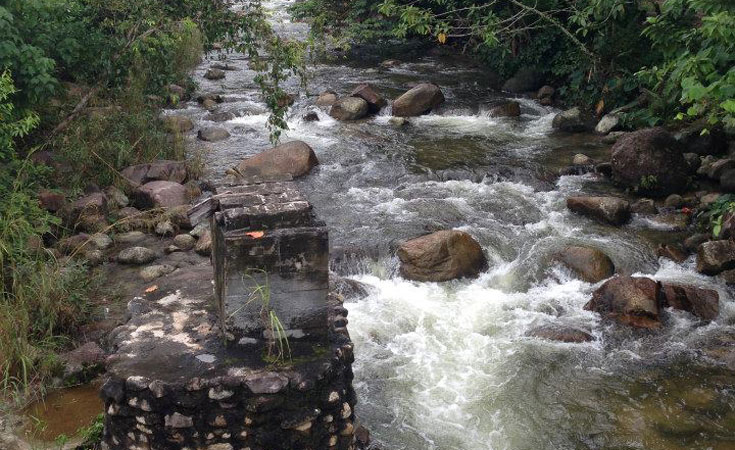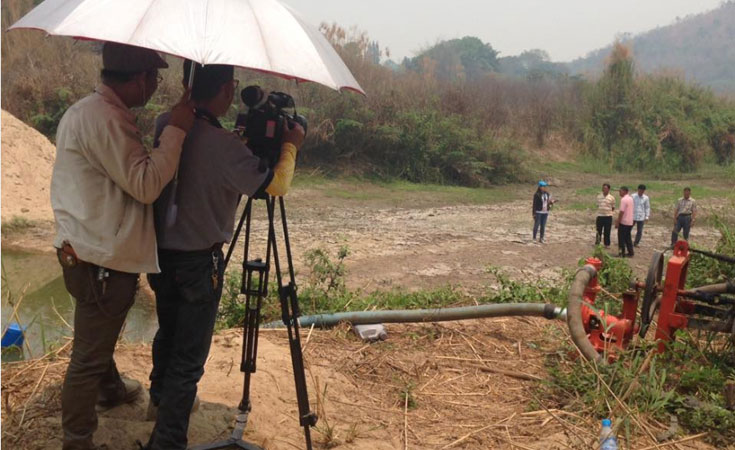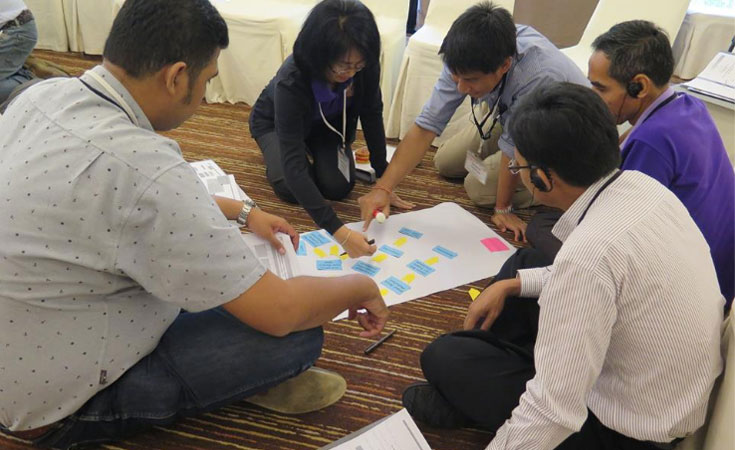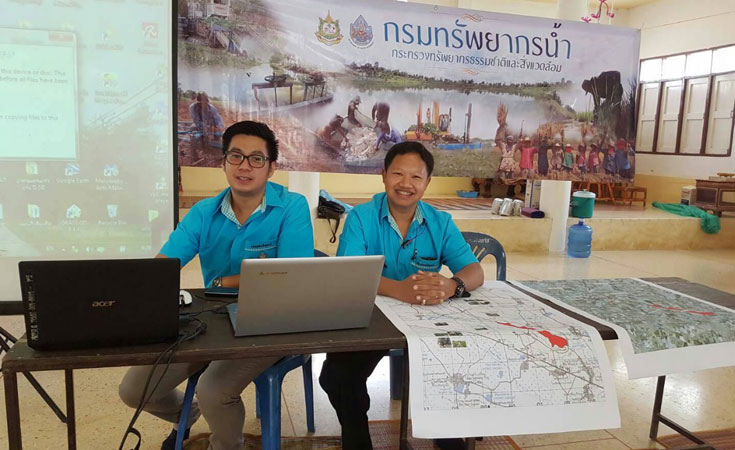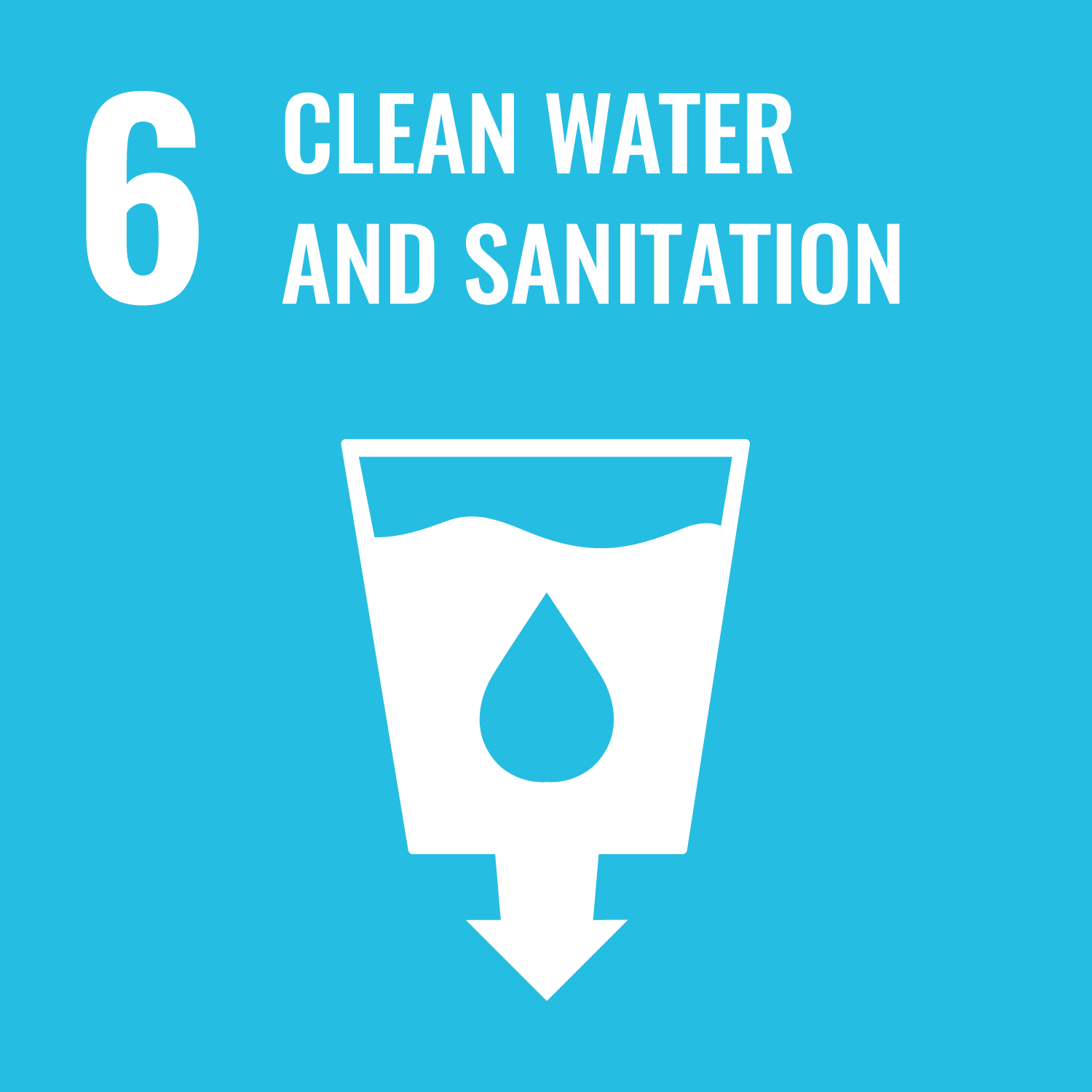Improved Management of Extreme Events through Ecosystem –based Adaptation in Watersheds(ECOSWat)
Objective
- To support the local water departments in the Huay Sai Bat , Lum Pachi and Tha Di basin in planning ecosystem-based adaptation measures against the effects of extreme events
- To facilitate in implementing ecosystem-based adaptation measures for the prevention of flooding and drought in the Huay Sai Bat, Lum Pachi and Tha Di catchment to reflect experiences into the national adaptation strategy for the water sector
- To support staff of the relevant water authorities to be able to design and evaluate ecosystem-based adaptation measures
Description
The project’s approach starts out in three pilot watersheds threatened by the impacts of climate change. To increase the adaptive capacity of the three watersheds, relevant professionals (from government, universities, etc.) will be advised to combine their expertise, activities and sources of information in order to exploit synergies and therewith improve the efficiency of the water management in the corresponding catchment area on the base of a common information management.
Inclusion of population is ensured by their involvement in stakeholder platforms. These platforms are based on the existing “River Basin Committee”.
Innovative ecosystem-based adaptation approaches will be implemented for demonstration purposes of adaptation measures in catchment areas. This is supported by training courses for relevant stakeholders in ecosystem-based adaptation.
Based on the experiences gained from the intervention in the pilot watersheds, ecosystem-based adaptation approaches for the development of adaptive capacities are fed into the national level. At the same time ecosystem-based adaptation education and training formats are anchored in the target region as well as at the national level.
Field of intervention
- Vulnerability & Risk Assessment study and Economic Evaluation method in collaboration with international, national experts and key partners to identify and rank the potential and suitable EbA measures in the pilot areas.
- Planning, designing and implementing EbA measures
- Adaptive Capacity Building in EbA approach at the local, national and international level.
- Riverscape Monitoring with UAV-based Imagery
- Strengthening the River Basin Committees and fostering cooperation of relevant stakeholders
Targeted beneficiaries
- River Basin Committees
- Provincial Authorization Offices
- Communities and Civil Society Organizations
- Universities (Khon Kaen University -KKU and Walailuk University-WU)
- Department of Water Resources (DWR) and Royal Irrigation Department (RID)’s responsible officials at National level
Achievements
- The two most relevant governmental water organizations, the Department for Water Resources and the Royal Irrigation Department, are officially prioritizing the EbA concept and measures.
- Road Map: vulnerability assessment, hydrological and climate change modelling, economic evaluation methods (Cost-benefit analysis, Cost effectiveness analysis), designing, participation process, implementation.
- Ecosystem-based Adaptation (EbA) training was developed together with German Research Institutes and practitioners, adapted to the Thai needs and translated into Thai language. Almost 600 Thais and 20 Internationals in English (i.e. Vietnam) were trained
- Unmanned Aerial Vehicles (UAV-Drones) were integrated into the planning process. The School of Engineering and Resources at Walailak University developed a curriculum out of the application and conducted training.
- A tool (carbon sequestration, water use and water production) for assessing and evaluating the ecological impact of measures was developed and presented during the 17th Global Conference on Environmental Taxation – Smart instrument mixes in a greening economy in Groningen, Netherlands.
- 7 conference or scientific papers were published or presented in international publications and conferences.
Publications/Knowledge Products
- EbA measures-Infographic
- ECOSWat at a glance
- Planning of Ecosystem-based Adaptation (EbA) Measure for Water Supply and Flood Prevention for the Royal Initiative Huai Ta Poe Reservoir Project, Mukdahan Province in Thailand
- The Integration of Drones and Interactive Mapping into Thai Water Management Sector
- EbA Roadmap – Project Activities and Achievements with technical descriptions (the summarization of ECOSWat)
- Making Ecosystem-based Adaptation Effective by FEBA (Friends of EbA)
- Best Practices on Planning, Implementing and Monitoring & Evaluating Ecosystem-based Adaptation to Climate Change
- Academic Publication: Water Security and Climate Change: Challenges and Opportunities in Asia, Asian Institute of Technology, Thailand Economic Benefits of EbA Measures to Assure Water Security
- Method Brief “Thailand: Vulnerability Assessment and Prioritization of EbA Measures in River Basins
- Planning of Ecosystem-based Adaptation (EbA) Measures for Water Supply and Flood Prevention for the Sae-Or Reservoir in Thailand, as well as Capacity Building, Sa-Keaw Province, Thailand
- The Economic Evaluation of Proposed EbA Measures in Tha Di and Chi River Basins
- Improved Management of Extreme Events through Ecosystem- based Adaption in Watersheds (ECOSWat)
- Vulnerability Analysis for the Lam Pa Chi Sub River Basin of the Mae Klong River Basin
COUNTRY
Thailand
DURATION
June 2013 - December 2017
